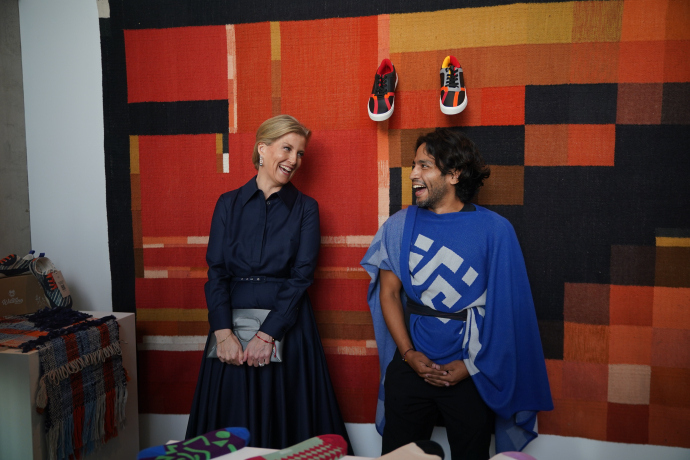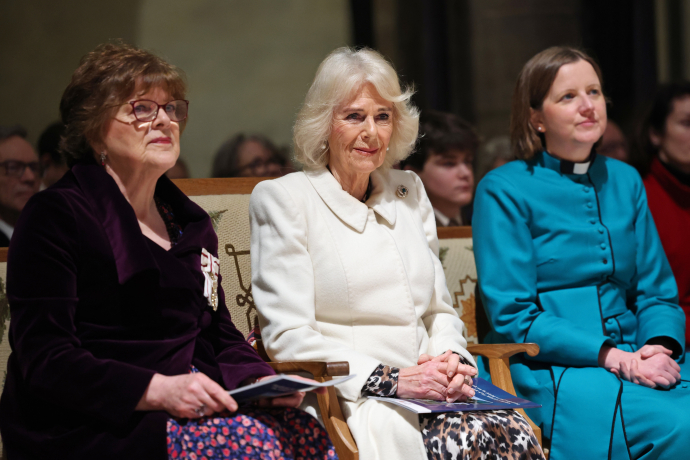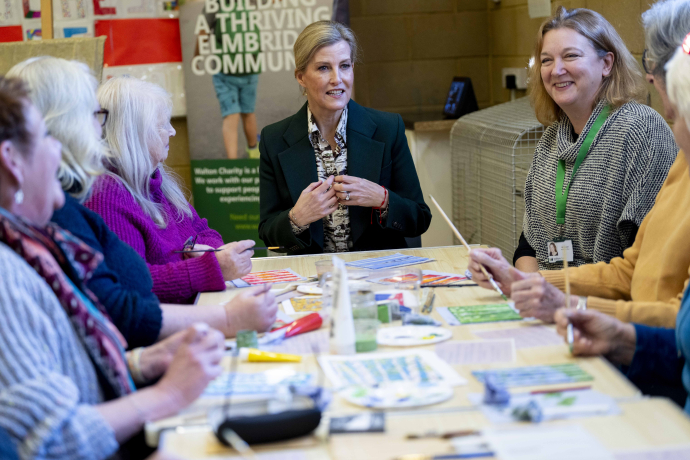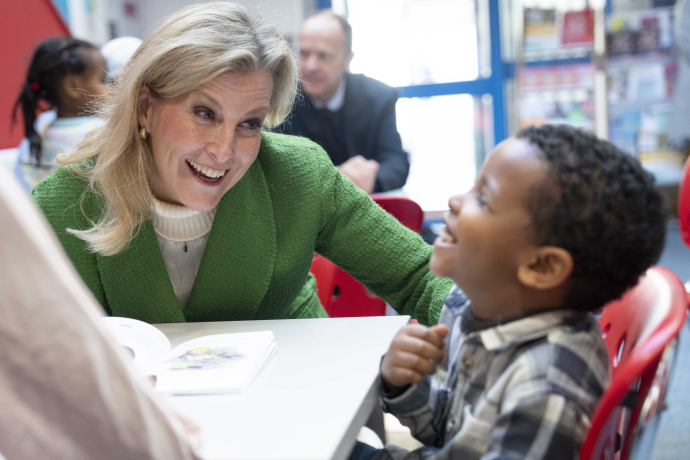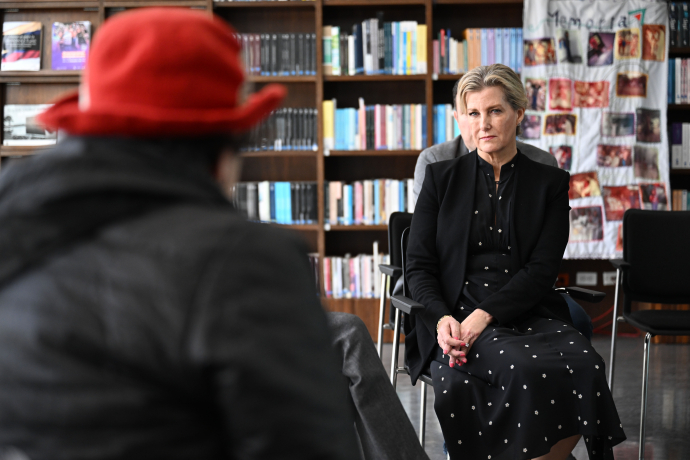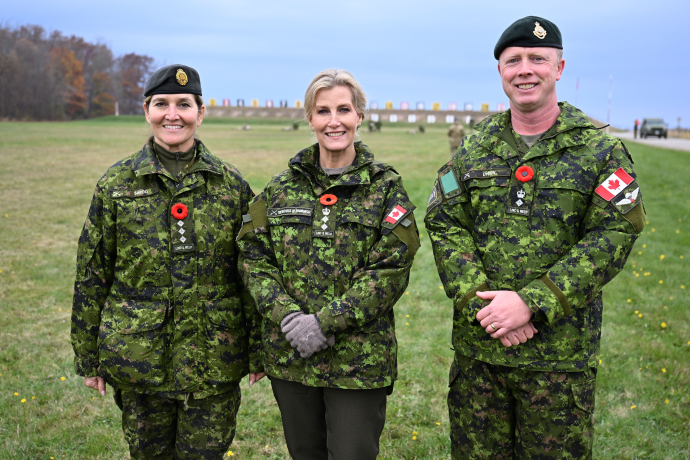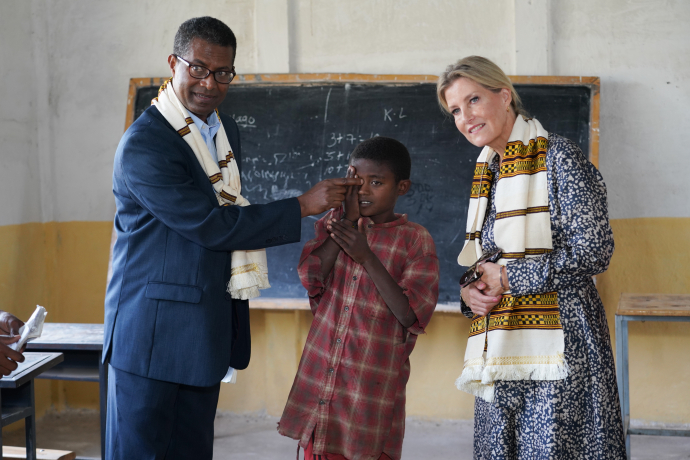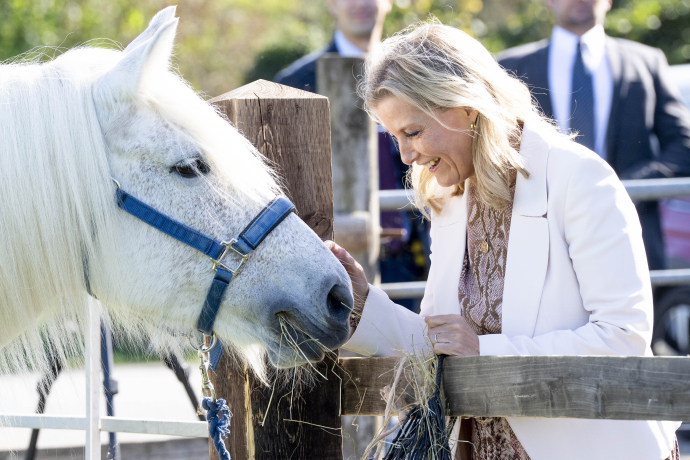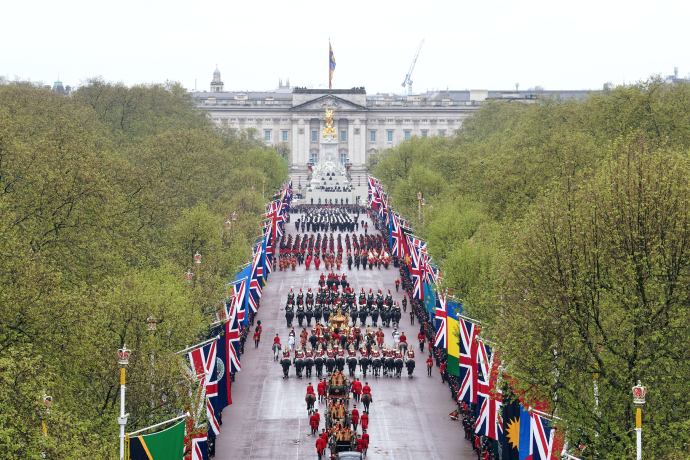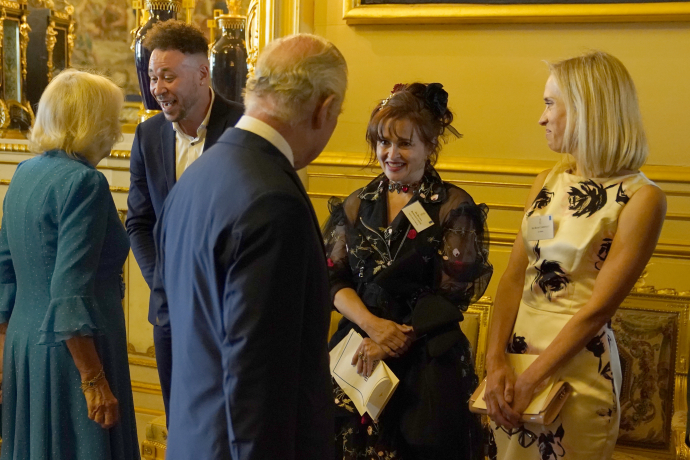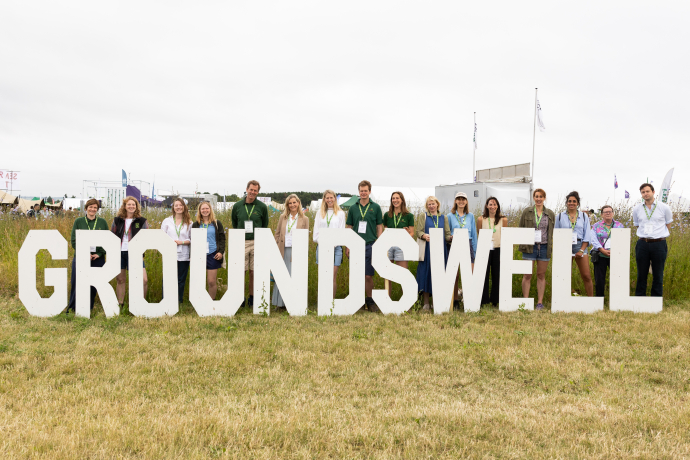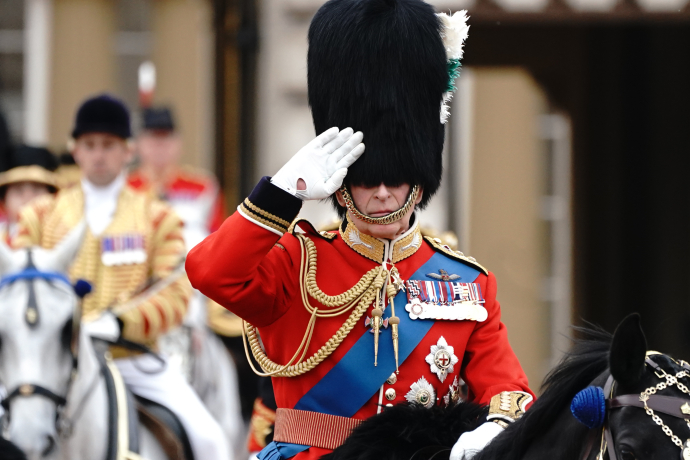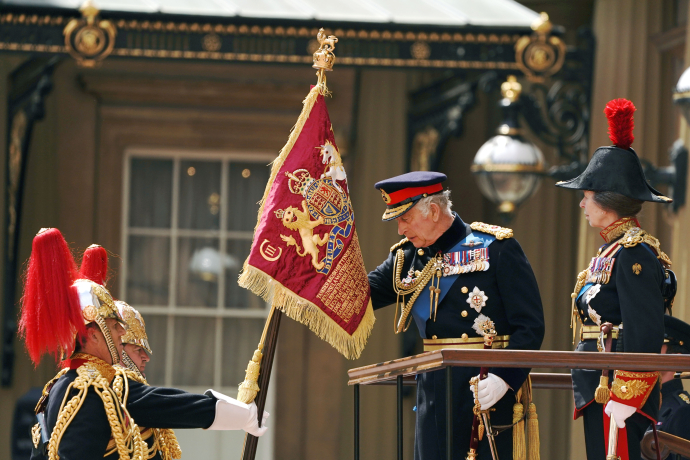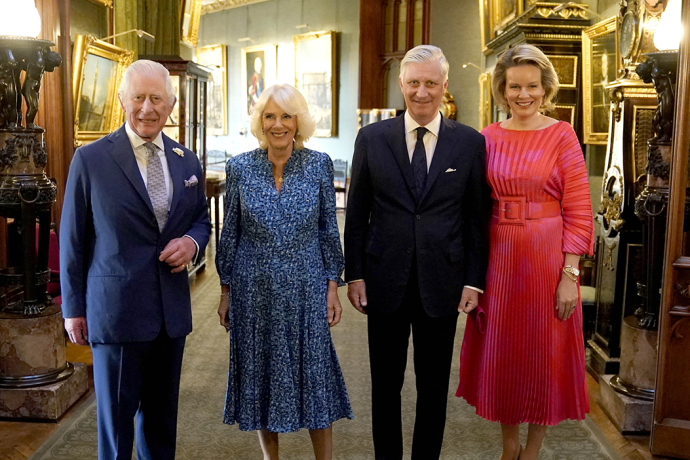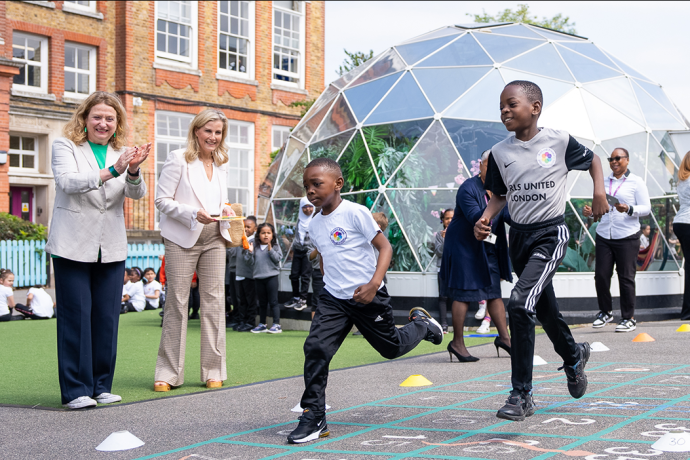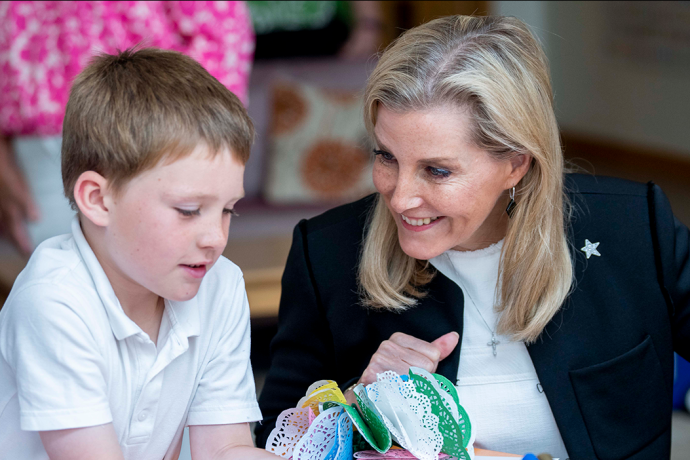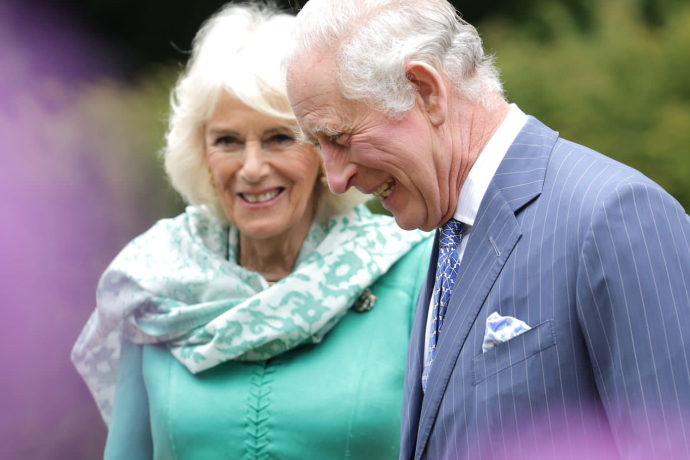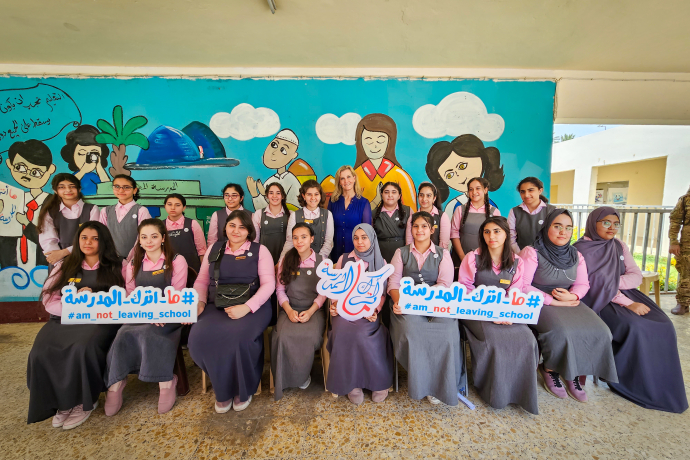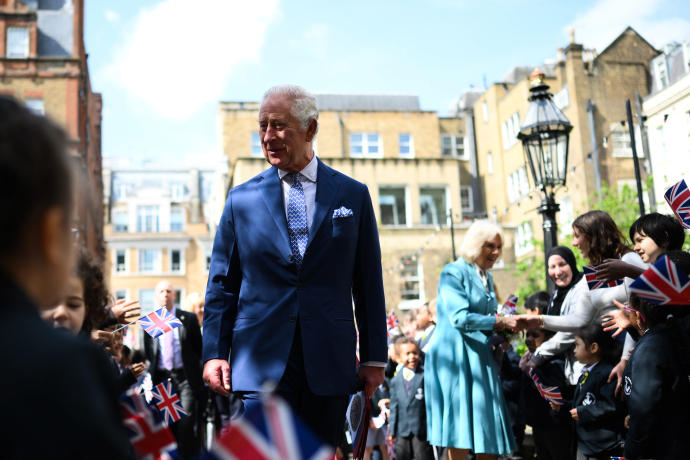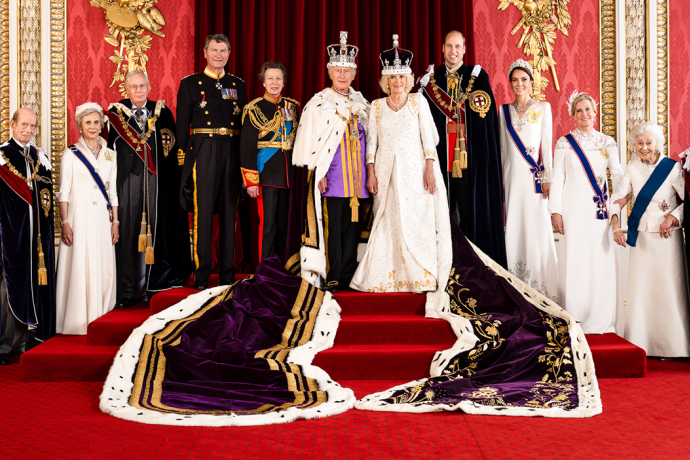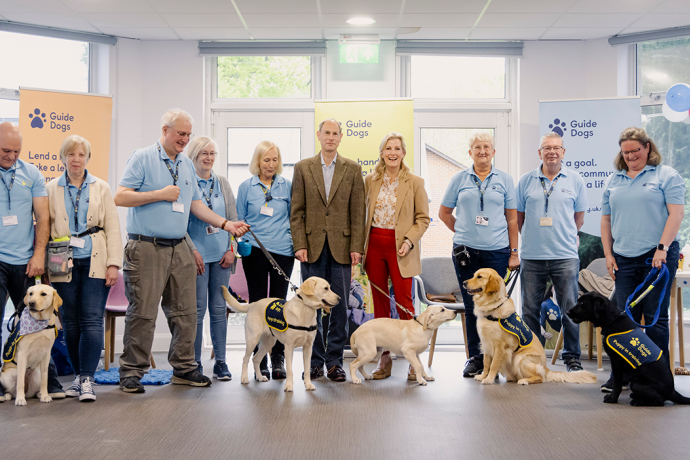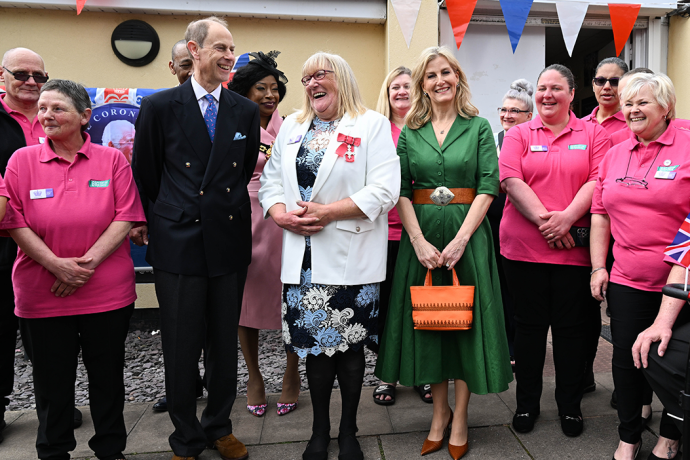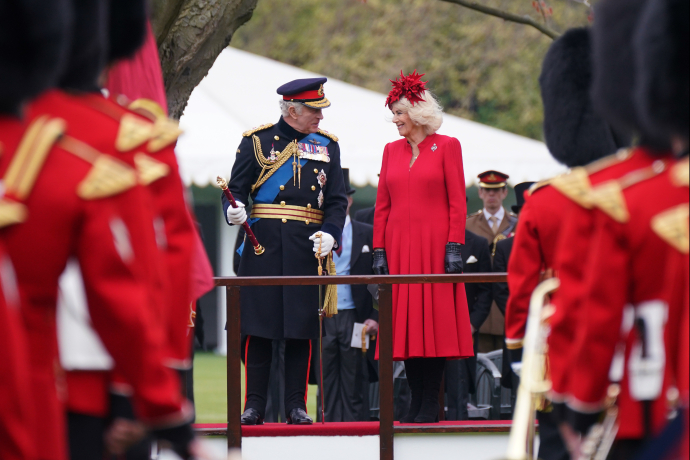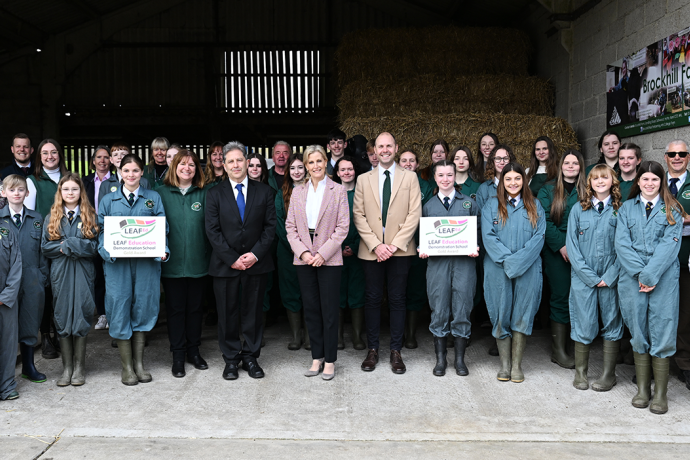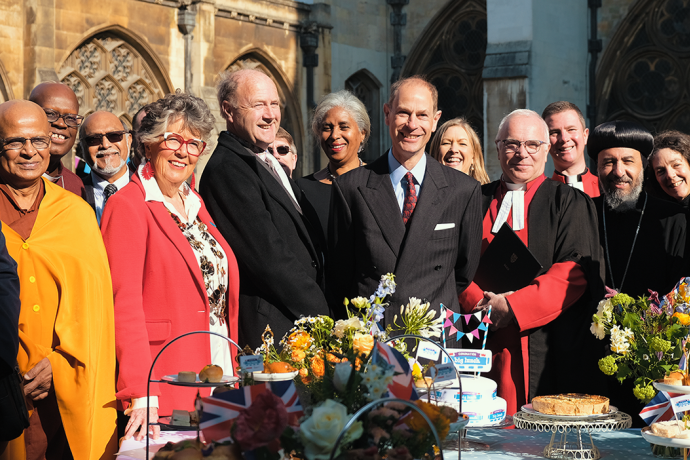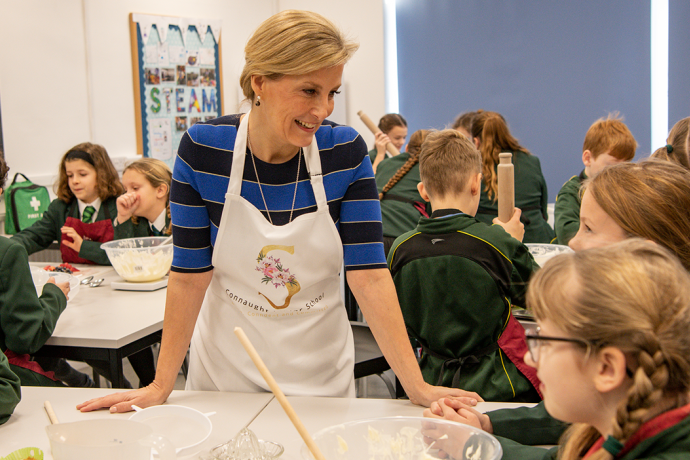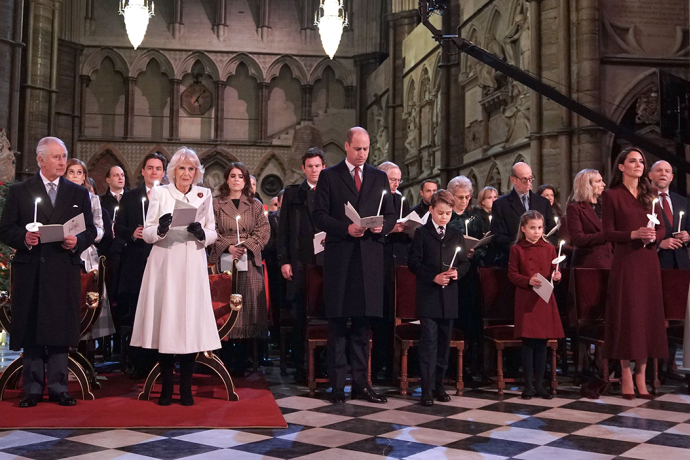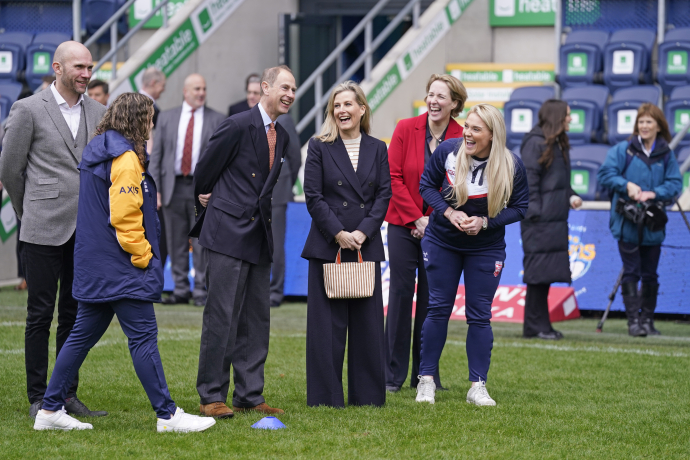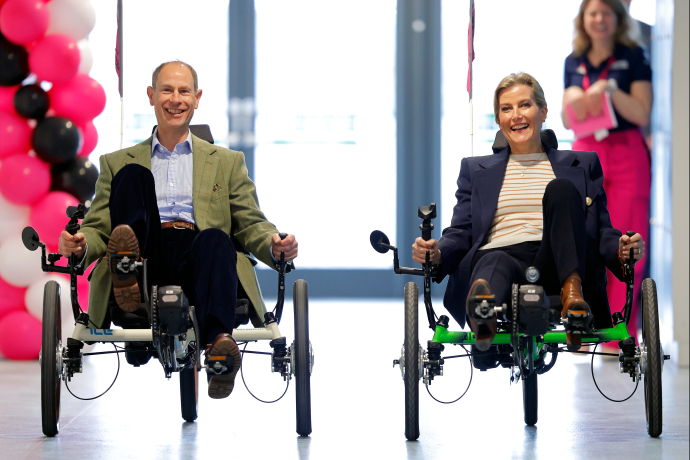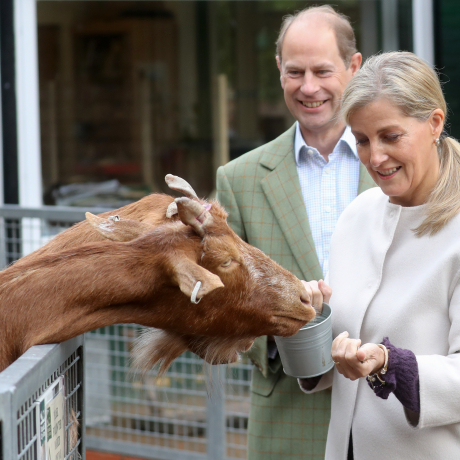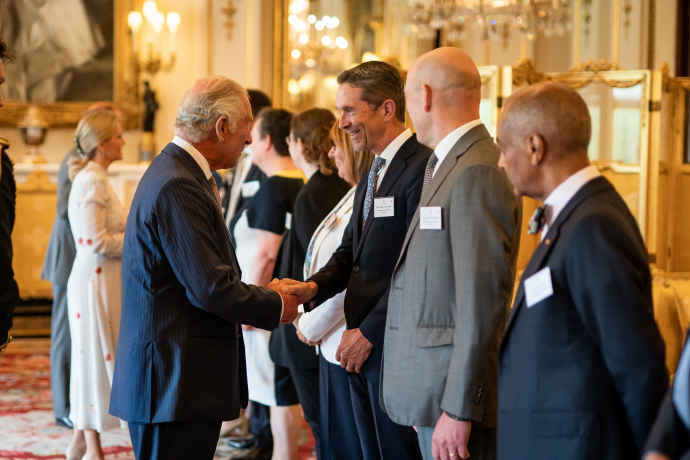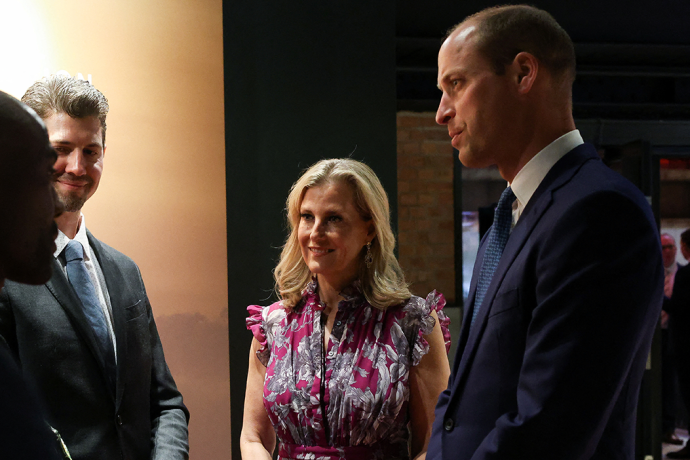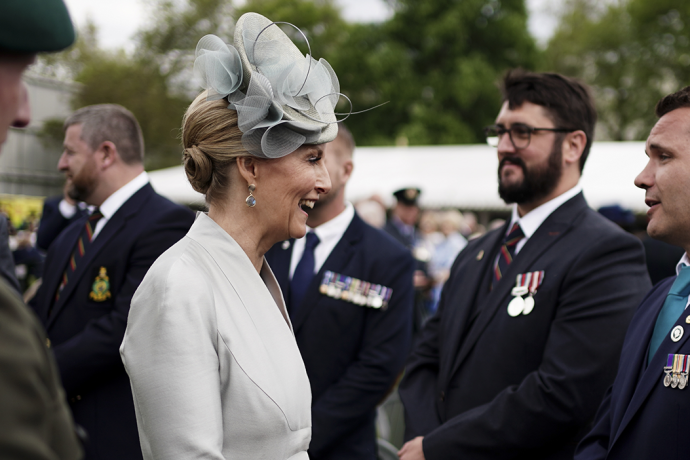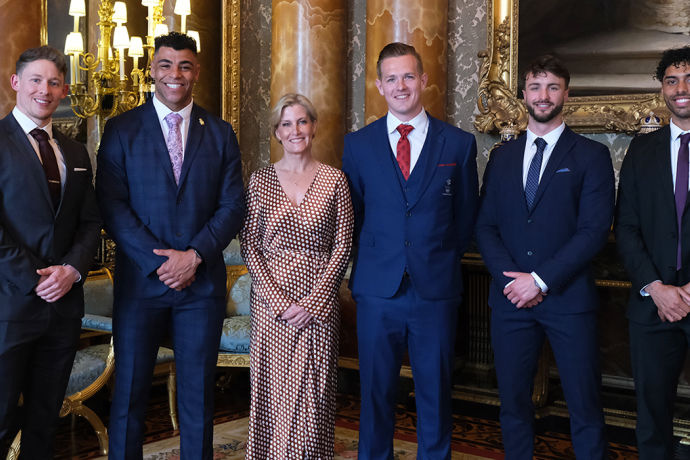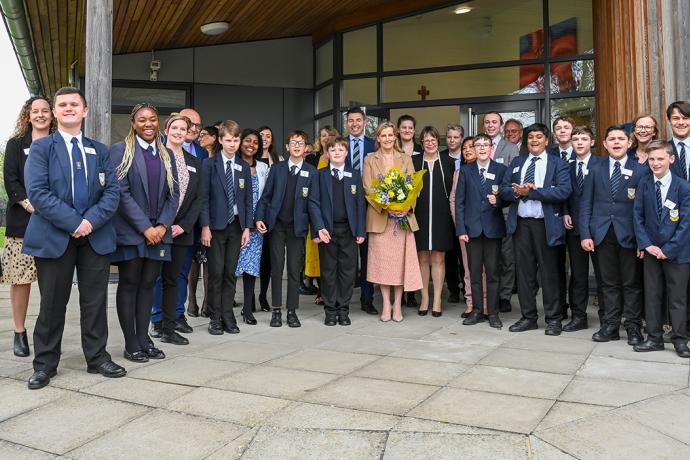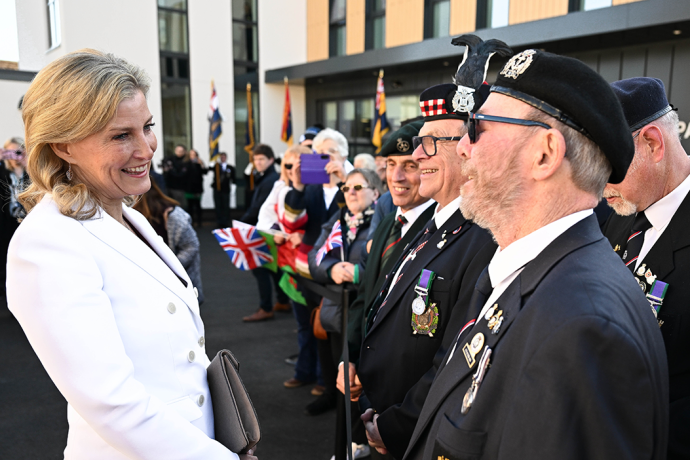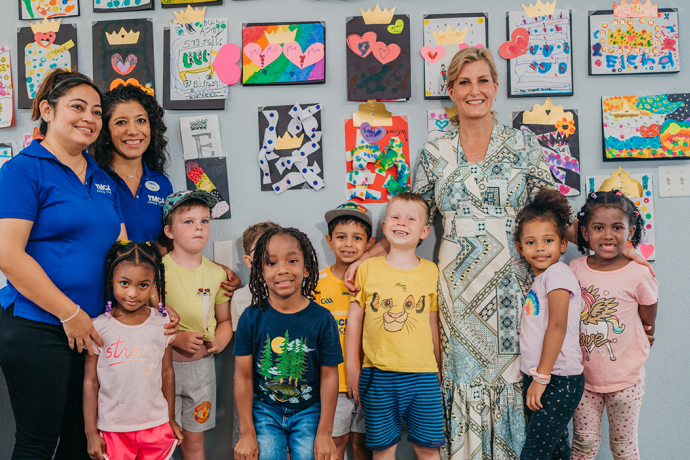The Countess of Wessex's speech at the European Parliament Intergroup on Children’s Rights event in Brussels
Published
Today I ask you to rededicate your efforts to ensure that the internet is a place of safety for all.
Members of Parliament, Ministers, Ambassadors, honoured guests; I would like to start by thanking the honourable member Hilde Vautmans for her kind introduction.
I must say it is an enormous privilege to be speaking as Patron of the UK's National Society for the Prevention of Cruelty to Children, and amongst a collective of policy makers and legislators from around the world, not only focused on the interests of children, but resolute in protecting their fundamental rights.
For over 130 years, the NSPCC has fought tirelessly for every childhood, and its charitable mission - 'to ensure every child is safe from abuse' is as critically important today as when the Reverend Benjamin Waugh founded the charity in 1884.
Today’s internet-age presents us all with enormous and positive opportunities to engage with each other online in ways we have never been able to do before. However, this virtual opening also presents new and very dangerous threats to our children, including the way that the internet enables predators to commit truly horrific abuse within what should be the sanctity and safety of a child's own home. This abuse has devastating consequences and severe long-term repercussions on their mental health, family and future relationships, with many experiencing trauma and long- term behavioral problems, and all too many attempting and committing suicide.
‘Online Child Sexual Abuse and Exploitation’ affects every country in the world and requires the strength and tenacity of us all to combat it, especially when across Europe, one in five internet users are children. Additionally, it is no one person's or organisation's responsibility, it is all our responsibilities to seek ways to prevent these crimes being committed, and so....
Today I ask you to rededicate your efforts to ensure that the internet is a place of safety for all.
As a reminder of why we are here today and what our mission is I would like to share a couple of accounts of young people, who have been supported by the NSPCC but whose traumatic experiences are replicated across Europe and beyond.
Their names have been changed to protect their privacy, but their voices must be heard; and their stories along with the tens of thousands of others must be the driving force and inspiration for your policies and laws. Above all, we must never lose sight of the devastation that too many children have experienced.
At the age of 14, Ben began speaking on Facebook to someone he thought was a girl, but was in fact a man who threatened to kill Ben’s parents if he didn't send some explicit photos of himself. Ben was terrified as this individual knew so many details about his family, so he did as he was asked. The scale of demands increased as did the threats to send the photos to Ben's friends. This person then shared the pictures and videos with other men along with Ben’s telephone number and details, who contacted him for more images which Ben supplied.
Eventually, not knowing how to stop it and feeling desperate Ben tried to take his own life. Discovered by his mother he was taken to hospital. Subsequently the police became involved and Ben had to tell his family what had happened. He says "I couldn't leave the house for ages and still feel sick when I go outside, but that just feels normal now. It feels normal to always feel like I'm going to be sick.”
Ben’s experience is not at all unique. In the year ending March 2021 there were over 90,000 child sexual abuse and image offences recorded by the police in the UK, and around 200,000 children have sent, received or been asked to send sexual content to an adult.
Last year the Internet Watch Foundation reported that in the UK alone there were 8.8 million attempts to access images and videos of children sufferiing sexual abuse during the country's lockdown, and this year reported a 117 percent increase in self-generated images in the first four months of 2021.
But these figures are not just limited to the UK ... 65% of children in Western Europe surveyed by the Weprotect Global Alliance have experienced at least one instance of online sexual harm. 65 per cent. That is well over half of our children who have been targeted and affected by these crimes.
If they faced this level of risk every time they stepped outside into the physical world, I ask you, would we allow that to go unchallenged?
Frida was only 13 when she was groomed by a married man in his 30s. It all started through Facebook before moving to WhatsApp and he appealed to her vulnerabilities surrounding her self- esteem and the fact she was being bullied at school to persuade her that they were in love and to trust him. Over a number of years he manipulated her into sharing explicit photos of herself, he also sent her images of himself.
Her experiences left her with long-term depression and anxiety, and at times Frida felt suicidal. By the age of 18, still involved with this man online, she was self-harming and had unhealthy coping mechanisms. Although she has been having therapy to help her deal with her issues, she has never revealed to her therapist what has really been happening as she was ashamed and terrified of being in trouble for making explicit images of herself when underage. Frida says: "I still feel very conflicted about it because I knew at the time it was wrong but still kept doing it. I know I was a child and he was responsible as the adult, but it’s still hard for me to view it as exploitation. This online relationship had serious consequences on my mental health."
These stories are just two examples of the realities behind the screens - how these devious and manipulative criminals can easily gain access into young lives and devastate them. There are countless calls made on a daily basis to NSPCC's Childline, and today, I visited Belgium’s Child Focus where, just as elsewhere in the world, I saw persistent evidence that young people are being abused and are suffering unimaginable mental anguish and terror online.
The distressing reality is that as COVID-19 made us ever-more reliant on virtual means to communicate; it also gave greater rise to Online Child Sexual Exploitation and Abuse. During lockdowns, at home, in their bedrooms, or when going online to stay connected with family and friends, children were exposed to horrendous, but preventable harm. Abusers look to exploit ever younger children, meeting them on social networks, grooming them through direct messages, coercing them into sending self-generated images, and escalating their abuse on encrypted messaging and livestreaming sites.
According to the WeProtect Global Alliance’s Global-Threat-Assessment this year, that harm in some of our countries in Europe has gone up 50%!
I am profoundly sorry to say that we are simply not protecting or preparing our children to use this transnational and virtual space.
But, let us recognise that this is a challenge we can solve and we can and must look to give children the safe and happy environment they deserve.
First, while it is important that we balance the fundamental rights of all Internet users, particularly around privacy, we must not do this at the cost of children’s rights.
Because when a child is coerced into creating an image or video, their basic human rights have been compromised and their privacy is stolen from them. We must also remember that every single time that an image or video is played, with every click they are re-victimised. And while the privacy of the criminal remains protected, this cycle of re-victimisation can persist indefinitely.
Secondly, we owe it to our children that they can freely and safely use online services that are fundamentally safe-by-design and we should expect that when companies are designing their products, or roll out new features, they must consider the risks to our children.
Let us encourage innovation to identify child abuse on messaging services. Let us tackle the growing problem of online grooming with novel technologies. Firms should take every reasonable step to “design out” harm and detect and report abuse and children should be front of mind during this process, and never an afterthought.
Thirdly, civil society organizations play a key role in highlighting where we need to go further and in highlighting the gaps between what companies say they are doing and the lived experience of children who may have an altogether different story. I applaud the efforts of a number of international groups who are working to find solutions including WeProtect Global Alliance, the Global Partnership to End Violence Against Children, and more recently the Technology Coalition whose willing collaboration in this fight is absolutely critical to its success.
In the months ahead I know policy makers and legislators around the world, will hope to strike that balance in upholding the rights of internet users while protecting the rights of children; but let that balance rest on the very real human suffering that presently exists across all our countries.
This audience present here in Brussels, and online around the world, will have a pivotal role in ensuring the protection of our children, and I stand with you all in being unwavering in our commitment to strengthen regimes in order to protect children from harms.
And while we are focusing on the preventative measures that will not allow these crimes to be committed, we must also continue to work together to disrupt and detect harm. Child Focus here in Belgium communicates across Europe to share and inform national responses to unfolding crimes, and is just one example of how important international collaboration is. No one nation can claim to have all the answers, but every nation has a part to play in sharing solutions, exchanging best practices and co-operating on the international response to this most heinous of threats to our children.
Today, I hope we are one step further along the road in making the world - both virtual and physical - a safe place for all our children and the children of the future. I thank you for listening to me, but more particularly I thank you for the time you dedicate to solving this imperative issue.
Related content
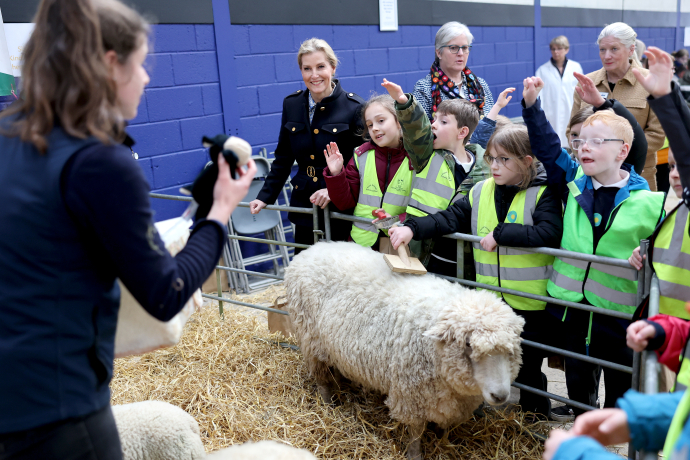
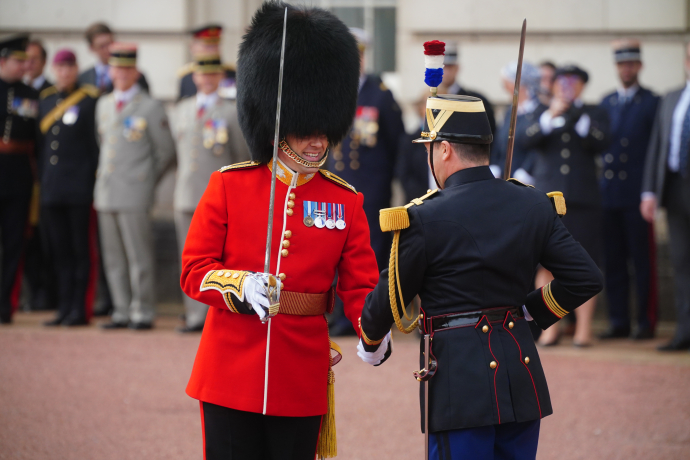
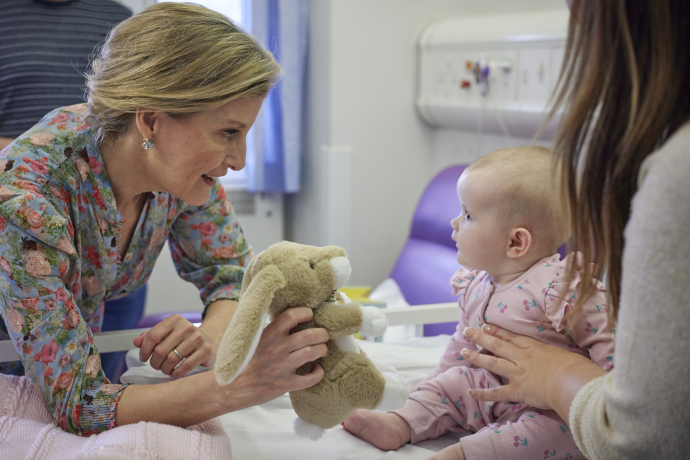
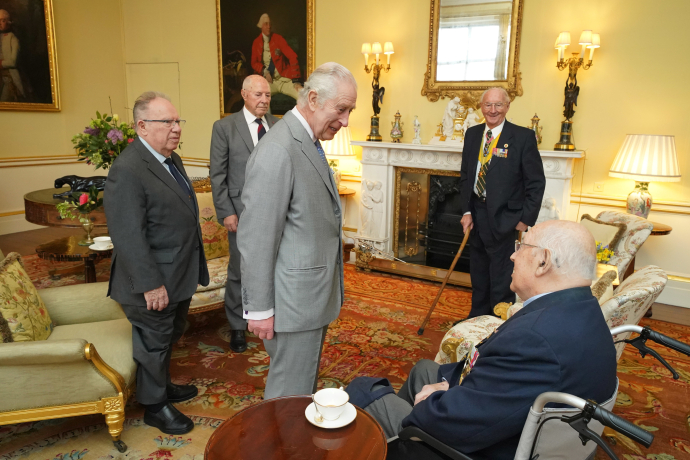
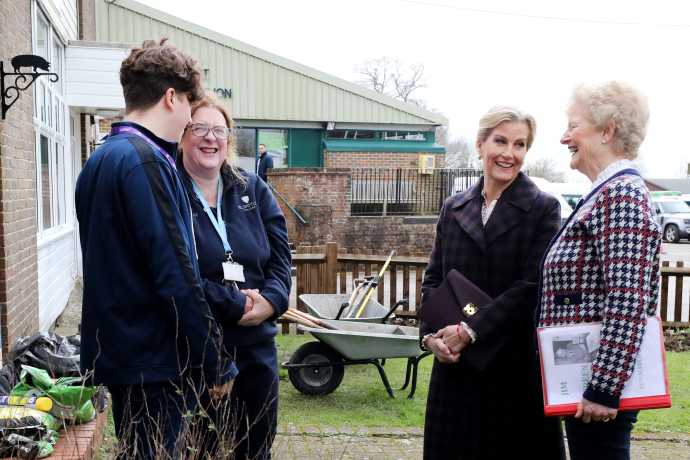
A speech by The Duchess of Edinburgh at the Community Sport and Recreation Awards, at Headingley Stadium, Leeds, ahead of The Duke of Edinburgh’s 60th birthday.
He is the best of fathers, the most loving of husbands and still is my best friend.
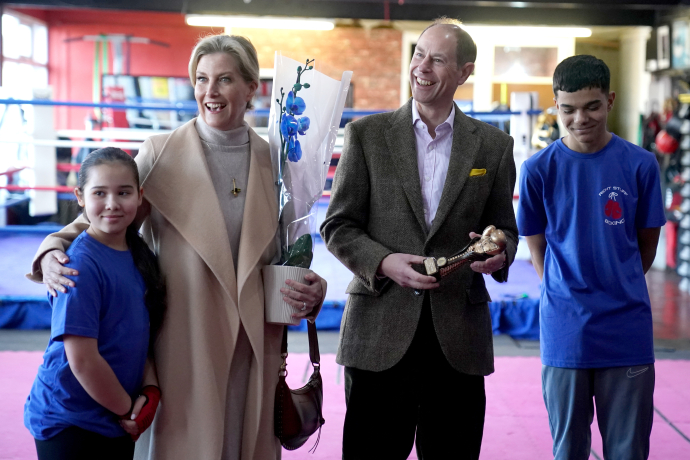
A speech by The Duchess of Edinburgh, via video message, at the Restoration of the Conflict-Related Sexual Violence Survivors’ Rights Conference, Ukraine
We must stand shoulder to shoulder with all survivors to secure justice and holistic redress, and ensure that this crime isn’t an accepted part of conflict.
